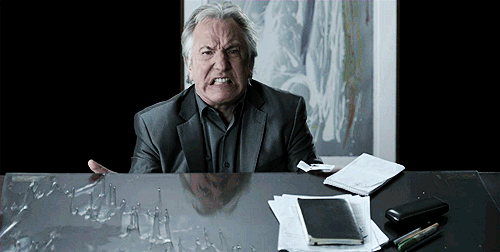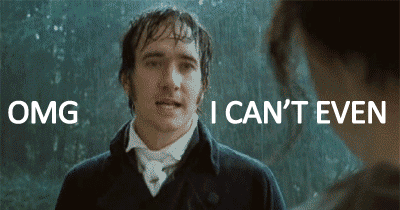Yesterday I talked about why I like physical books and what advantages they for readers. Most readers I know feel the same–they love books, they love holding books, they love the smell. (Heck, Giles agrees. How can I argue with Giles?)
So what about e-books? So far, I haven’t heard a lot of readers talk about how much better the e-reading experience is. Some people, like Jonathan Franzen, don’t even think an e-book counts as real reading. Do we need to gather the villagers and our pitchforks and run e-books out of town?
I say no. E-books have their place in the book world, too. Here are a few things I like about the e-reading experience:
 1. Your Library in your Suitecase
1. Your Library in your Suitecase
I avoided e-readers for a while, but then my husband and I were getting married and going on our honeymoon–keeping us away from our home libraries for more than two weeks. A big part of my vacation time includes reading, so it was a choice between bringing eight hard copies or investing in an e-reader. I was able to have a dozen books with me in a convenient little device.
2. Size Doesn’t Matter
Even when I’m not traveling, sometimes it’s not convenient to carry around a giant book. (I’m looking at you, Jonathan Strange & Mr. Norrell.) I’d end up leaving heavier books at home because they wouldn’t fit in my purse or would be too heavy to lug around all day, and it would take me much longer to finish them. On an e-reader, you can carry around Moby-Dick and War and Peace and the entire Harry Potter series in your purse.
3. New Books Without Leaving Your Home
On a snowy, sleety day like today, I’m tempted to crawl under the covers and never leave. Thanks to e-readers, I’d still be able to get new books. As awesome as it is to go to a library or bookstore, it is pretty cool to have a new book while I’d curled up on the couch.
 4. No Library Fines
4. No Library Fines
Permissions for e-books and libraries are still a big issue, but I hope we see an increase in libraries that can offer electronic options. With regular books, you have to run back to the library on your due date or risk being fined. (Or as I like to think of it, you risk a donation to the library, which makes me feel better about myself.) With e-books, you simply lose access to your checked-out book on the due date. Way less hassle for readers.
5. Free Books
No, not just library books–you can download electronic versions of anything in the public domain for free. You want to read Franekstein? Get it now. How about Persuasion? It’s yours forever. When I first got my e-reader, I downloaded a bunch of classic novels. Getting them for free was a great excuse to dive into content I always thought about but never pursued as much as I should have.
6. Cheap Books
Okay, so maybe they’re not free, but there are still a lot of daily deals for e-books. If I see something available for $3 (as opposed to $10), I’m way more likely to download a copy than I would be to search for a hard copy–even a discounted one. I think this helps me take more purchasing risks. If it’s cheap and won’t take up space on my bookshelves, why not spend a couple bucks? And even if it’s not providing the publisher/author with the same amount of royalties, these are probably books I would have waited to get at the library anyway.
 7. Dictionaries at Your Fingertips
7. Dictionaries at Your Fingertips
I admit–sometimes when I come across a new word in a paper book, I gloss over it and assume I’ll understand from the context. (Sorry, English teachers!) Usually it’s because I don’t have a dictionary with me. My e-reader, on the other hand, came with several dictionaries, so I there’s really no excuse to skip over unrecognizable words.
8. Organization
I always have great ideas about how I’ll organize my bookshelves, and inevitably they fall to disarray. But on my e-reader, I can create categories (like Classics or YA or Non-Fiction) and immediately sort books. That way, I always know where Jane Eyre is. On my bookshelves, it’s probably somewhere on the tall one? Maybe on the one by the kitchen?
So where does that leave us? Is one option better than the other? My opinion is no–they both have benefits and flaws, and they both have their place in my life as a reader. I’m not afraid that e-books will totally kill paper books, and even if they do eventually, that’s a long time coming.
At the end of the day, delivery method doesn’t concern me as much as story. Reading A Tale of Two Cities or Because of Winn-Dixie on an e-reader or as paper books still provides me the same story. As long as publishers keep giving me that, I’ll keep reading.
Are you on one side of the physical book vs. e-book debate? Share your thoughts in the comments!
(image 1: Gene Wilburn)(image 2: smohundro)(image 3: albertizeme)










